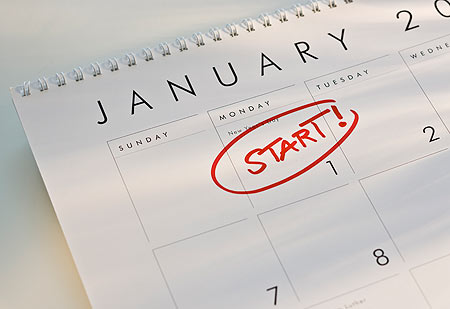Posted by Kerri Rodley in Organising Tips, Productivity, Work Life Balance | 0 Comments
How to make and KEEP your New Year’s resolutions…
By Sue Shellenbarger at The Wall Street Journal
Pam Hild has been trying for years to get her holiday preparations organized. Her usual habit was to leave decorating and party arrangements until the last minute, and she sometimes forgot about gifts she had bought and stashed in closets. “I was always a raving maniac over the holidays,” says Ms. Hild of Grand Rapids, Mich.
Several weeks ago, she resolved to try a new approach. With help from a professional organizer, she started planning weeks in advance, posted a calendar of tasks with deadlines on her refrigerator and figured out how she would get back on track when she slipped up. For the first time, she is completely ready, days in advance. Getting there required going beyond just making a resolution. “You have to change your thinking and be able to maintain it.”
In one study of how emotion and cognition interact in decision-making, Dr. Shiv asked some subjects to complete a challenging mental task, memorizing a seven-digit number, while others were asked to remember only two digits. When the same subjects were later given a choice between eating a delicious piece of chocolate cake or a healthy fruit salad, Dr. Shiv says, those who had memorized seven digits were more likely to choose the cake, suggesting that the mental exertion affected their ability to repress the desire for instant gratification and make a healthy choice.
Dr. Shiv recommends a carrot-and-stick approach to a resolution: Focus most of the time on the emotional rewards you will reap for changing your behavior. If you want to lose weight, visualize yourself feeling the benefits, thinking, “If I work hard, I will look so good, and feel so good,” he says. As a stick to help you get started on your new habits, evoke the emotional consequences of failing to change. “Visualize yourself feeling fat, and think, ‘If I don’t work out, I will look like a heavy thing,’ ” and be less satisfied with yourself and your social life. Over time, your resolution “is going to get tagged with those emotions,” which will kick in automatically even when the cognitive parts of your brain are worn out, he says.
Linking your new habits to other pleasant changes can help. Kate S. Brown, a professional organizer in Sarasota, Fla., says some of her clients who struggle with disorganization do better when she has them buy new files that are aesthetically appealing. “If you like color and you create a colorful file system, it creates happy feelings when you use it,” she says.
Mary Dykstra, a Grand Rapids, Mich., professional organizer, coaches people to set specific, realistic goals, then to break each goal into small, measurable steps, with a timetable. This will help avoid the common pitfall of attempting too much, such as losing 40 pounds in two months, and setting yourself up for failure, she says. Also, line up in advance the supplies and resources you need for each new step. If you plan to organize your office, get the shredder or files you need. If you are quitting smoking, get nicotine patches and other cessation aids.
Read the complete article from the Wall Street Journal here:
http://online.wsj.com/article/SB10001424052748703581204576033824100634278.html

